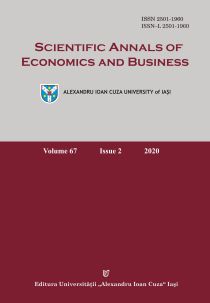Decomposition Analysis for the Comparison and the Comprehension of Conventional Input-Output Impacts’ Indicators: An Empirical Paradigm
Decomposition Analysis for the Comparison and the Comprehension of Conventional Input-Output Impacts’ Indicators: An Empirical Paradigm
Author(s): Argyrios D. Kolokontes, Achilleas Kontogeorgos, Efstratios Loizou, Fotios ChatzitheodoridisSubject(s): Economy, Business Economy / Management, Micro-Economics
Published by: Editura Universităţii »Alexandru Ioan Cuza« din Iaşi
Keywords: I-O analysis; backward linkages’ indices; type I multipliers; initial exogenous stimuli; "intrasectoral initial trends for impacts’ generation”;
Summary/Abstract: Sometimes, the priorities in the growing patterns create dubiousness, surprises and are proved unsuitable to re-form and redress the distortions of economy, magnifying them or even emerging news. When the external or the individual interferences are remained out of the planning, then the knowledge of why the various indices yield conflicting sectoral rankings can help the policy-makers to plan ameliorated strategies. In this paper a decomposition analysis for the components of conventional backward linkages’ (BLs’) indices and the corresponding type I multipliers (t.I-Ms’) has been taken place, in order to support the comparison and the comprehension of conflictions that are recorded on their derived sectoral rankings. For the empirical paradigm, data from the Greek economy have been used. The indicators’ appropriateness for the developmental planning has been scrutinized giving an emphasis on the model’s causality, the initial exogenous stimuli and the “intrasectoral initial trends for impacts’ generation”. The analysis provides a proof that the BL’s indices are strongly tendentious and the t.I-Ms’ are preferable for the medium-to-long run growing planning.
Journal: Scientific Annals of Economics and Business
- Issue Year: 67/2020
- Issue No: 2
- Page Range: 193 - 217
- Page Count: 25
- Language: English

